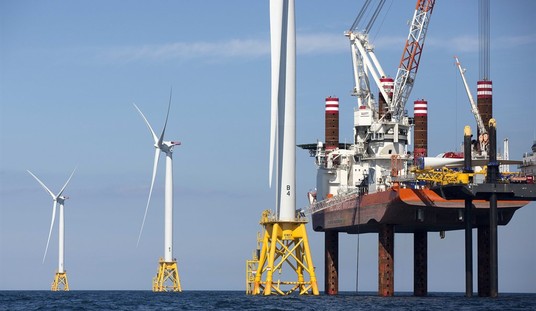The trouble with socialism, Margaret Thatcher once observed, is that their governments “always run out of other people’s money.” What happens then? Why, they keep asking for other people’s money, of course! Venezuela has teetered on the edge of default for months, but its dictator Nicolas Maduro has a plan to resolve it. The plan is to ask everyone owed money by Venezuela not to worry about getting paid back.
Seems legit:
President Nicolás Maduro on Thursday called for a restructuring of Venezuela’s foreign debt, blaming heightened U.S. sanctions by the Trump administration and potentially signaling a critical new phase in the country’s economic collapse.
Maduro stopped short of declaring the kind of broad, messy default that analysts have feared in the oil-producing nation, and he said Venezuela would on Friday make a key $1.1 billion bond payment for its state energy firm, PDVSA.
But his blanket statement seemed an admission that Venezuela — buckling under low oil prices, a recession and the highest inflation rate in the world — was reaching the limits of its ability to keep servicing debt given sanctions and its economic stresses.
Actually, Maduro’s not asking:
“I decree a refinancing and restructuring of all foreign payments,” Maduro said on state TV late Thursday.
That’d be a neat trick, as the New York Times explains. Maduro can decree all he wants, but the US sanctions themselves have all but cut off Maduro’s lines of retreat. The best Maduro can hope is that all of the people who have provided Venezuela with OPM can pressure the Trump administration to allow them to throw more good money after the bad:
“There’s no way to restructure under existing U.S. sanctions, but the government may be hoping that bond holders now pressure the Trump administration to create an exemption to the sanctions,” said Risa Grais-Targow, director for Latin America at Eurasia Group, a political risk analysis firm.
Maduro managed to make that bad situation even worse by putting his vice president in charge of the effort for restructuring:
In a challenge to the Trump administration, Mr. Maduro also named Vice President Tareck El Aisammí to lead the efforts. Mr. El Aisammí has been sanctioned by the United States over allegations that he is a narcotics trafficker, which blocks Americans from doing business with him.
Er, shouldn’t the appointment of a narcotrafficker to handle national debt be a signal that socialism isn’t the only problem with lending Venezuela money? It should raise questions about whether the debtholders in PDVSA and other state-owned entities deserve any consideration at all when it comes to a Venezuela default. Why should we lower sanctions on narcotraffickers and dictatorships that are actively oppressing their people just to benefit the people who sustain the dictatorship?
Perhaps because you know who is waiting in the wings:
In a default, Venezuelan petroleum exports would be interrupted, forcing the government to cultivate new ways of getting the nation’s oil into the international marketplace, perhaps including an increasing dependence on the Russian oil company Rosneft, according to analysts.
During a similar debt crunch in April, Rosneft provided a $1 billion advance payment for oil, which was crucial for Pdvsa to make nearly $3 billion in bond payments. Last week, senior Russian officials said they were ready to restructure some debts to suspend hundreds of millions in payments until 2020 or later.
Rosneft has a 49.9 percent stake in Citgo, Pdvsa’s refining and gasoline station subsidiary in the United States, as collateral for a $1.5 billion loan to the Venezuelan oil company. Rosneft and Pdvsa are in negotiations to swap Rosneft’s Citgo holdings for oil fields in Venezuela out of concern that the United States government could eventually place sanctions on Citgo.
Russia and Iran are already making inroads in South America, and this would push Maduro even further into their orbit. However, Russia and Iran are also petrostates and have similar problems as Venezuela, if not to similar degrees; they don’t have as much spare cash as before, thanks to low oil prices. The US could push them even lower by increasing domestic production, plus the US is one of the few countries prepared to refine Venezuela’s dirtier crude in large quantities. It might cost Russia and/or Iran more than it’s worth to rescue Maduro from the socialism that has run its entirely predictable course in Venezuela, almost to its entirely predictable end, when socialist leaders are put up against the wall in the next glorious revolution.
The Maduro government has called a meeting with creditors in Caracas for November 13th:
Venezuela has called its foreign creditors to a meeting November 13 in Caracas in an effort to restructure its estimated at $150 billion debt, Vice President Tareck el Aissami said Friday.
Aissami said the government is seeking “sovereign commitments” for a debt renegotiation. …
Much of Venezuela’s debt is held by China and Russia, to be paid off in oil — the resource that underpins the Venezuelan economy. The country has less than $10 billion in foreign currency reserves.
In other words, the current socialist leaders’ backs are up against the wall. Will they find sovereign commitments for a new flow of OPM?








Join the conversation as a VIP Member